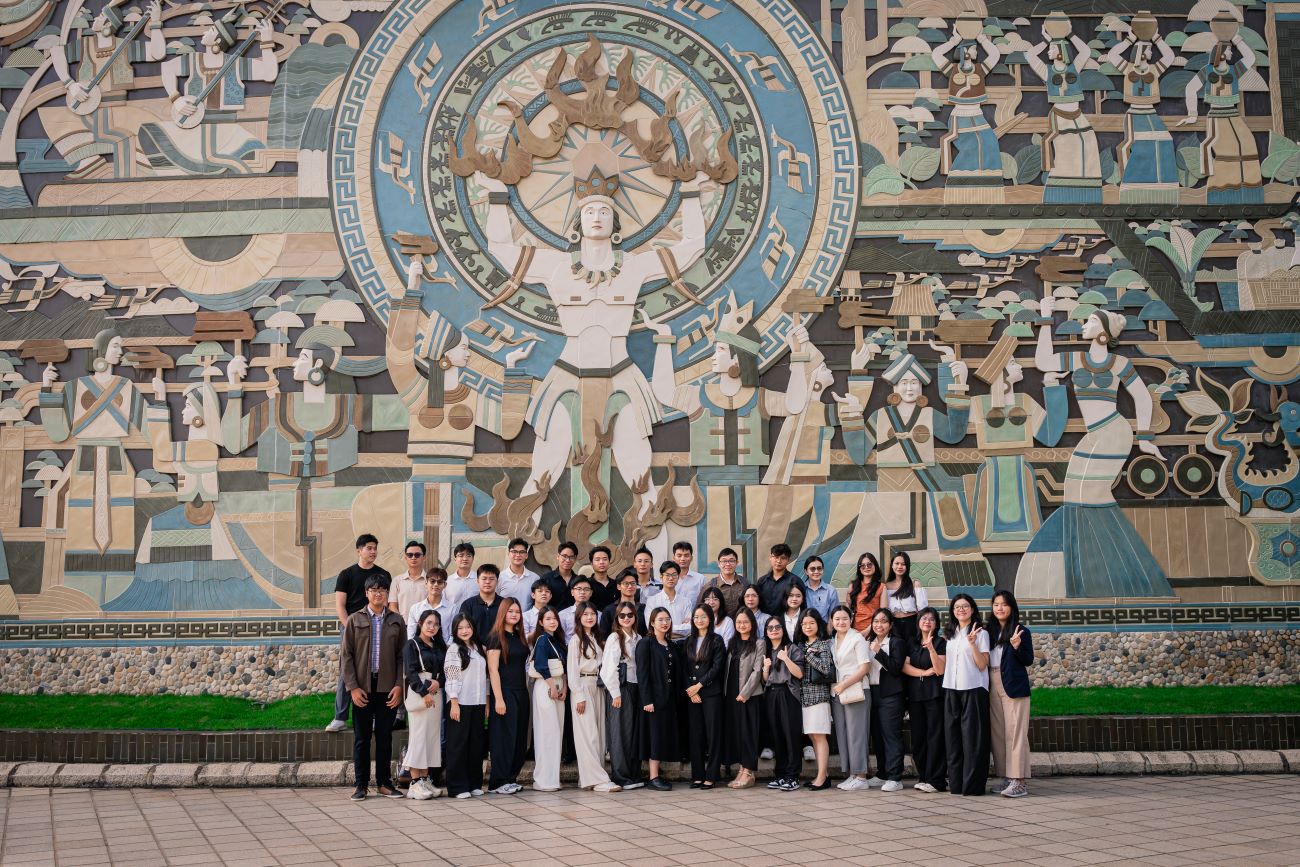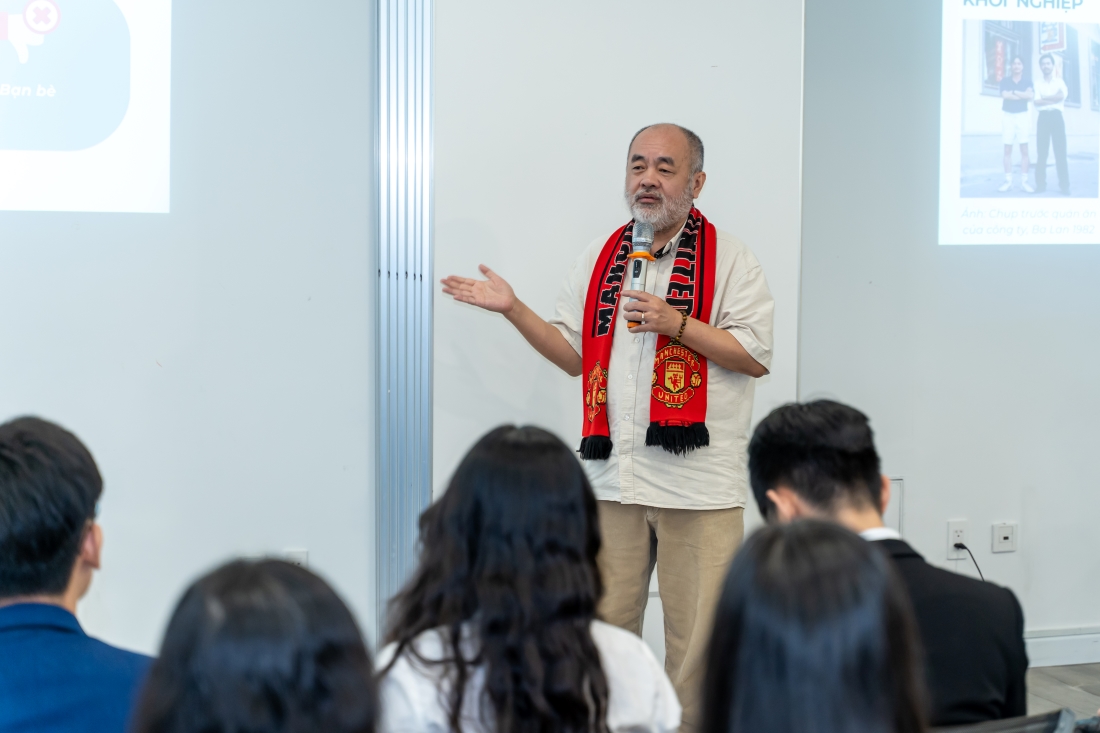LQT Talk #17: Is failure the “end” or a hidden path to success?
On April 4, 2025, LQT Talk #17 took place with the theme “Failure and Success: If the consequences are not the end, there is always a way to overcome”.
The event featured Dr. Ly Qui Trung, Founder of the WSU-LQT BBUS Program, and Dr. Nguyen Tuan Quynh, Founder and Chairman of Saigon Books.
Dr. Nguyen Tuan Quynh and 22 years of making an impact
Dr. Nguyen Tuan Quynh is currently the Vice Chairman of the Young Entrepreneurs Association of Ho Chi Minh City and holds a PhD in Business Administration. As a university lecturer, he is frequently invited to speak and serve as a judge at numerous startup and innovation competitions.
Before founding and leading Saigon Books in 2016, he spent over two decades in leadership roles at major enterprises such as Saigon Petro, Saigon Gas, Vina Gas, SFC, PNJ, PNC, and Alpha Books. His extensive experience in both business management and education has made him one of the most influential voices in Vietnam’s startup community.
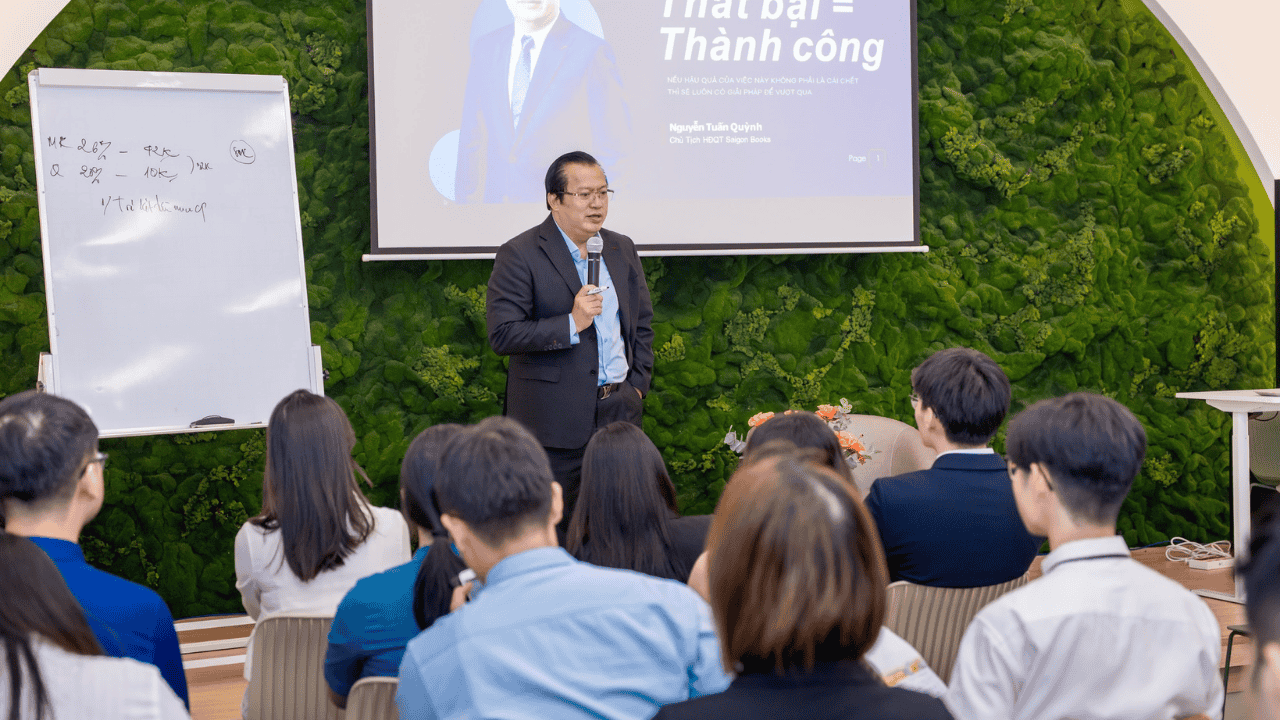
The 4A Model – The key to building mental toughness from failure
According to Dr. Nguyen Tuan Quynh, failure is not the end. It is an essential part of every individual’s growth journey. He shares: “Failure is not a measure of self-worth, but an opportunity to learn and adjust.”
To avoid getting trapped in negative emotions after setbacks, the 4A model offers a practical approach that helps individuals transform challenges into motivation for further progress.
The 4A model includes:
- Acknowledge: Recognize and actively face failure instead of avoiding it or blaming others. This is the foundation for starting the process of positive change
- Analyze: Objectively examine the causes of failure, identifying areas that need improvement in thinking, actions, or strategy
- Adjust: Based on the analysis, individuals need to make the necessary adjustments in alignment with their current goals and real-world conditions
- Advance: Take action with a renewed mindset, ready to apply the lessons learned to drive sustainable growth
In the dynamic world of business, the ability to quickly adapt and make timely adjustments is a key factor that helps individuals or organizations stay resilient. Those who are open to learning from their mistakes often have a distinct advantage in coping with pressure, changing strategies, and maintaining long-term development.

For students pursuing a career in business, this mindset becomes even more critical as they are constantly required to make decisions in ever-changing and high-risk environments. When students learn to view failure as an opportunity to navigate forward, they develop critical thinking skills, enhance problem-solving abilities, and build resilience in their mindset.
Each step in the 4A model contributes to building a strong foundation for both cognitive and behavioral growth. As such, the model serves as a mental compass, helping young individuals reorient themselves after every challenge and continue confidently on their journey of personal and professional development.
The three mentors everyone needs on their growth journey
According to Dr. Nguyen Tuan Quynh, each individual needs the guidance of three types of “mentors” to unlock their potential, shape their thinking, and continue progressing on their chosen path:
- The first mentor: Someone who proactively points out your shortcomings and helps you recognize what needs improvement
- The second mentor: A person who directly imparts knowledge and skills so you can address those shortcomings effectively
- The third mentor: A consistent companion who provides encouragement and motivation to help you overcome challenges
These mentors do not necessarily have to be professional educators. They could be a manager, a close friend, or a family member who quietly listens and supports you through difficult times.
Dr. Nguyen Tuan Quynh emphasizes that the key lies in maintaining a learning mindset—being open to feedback and willing to grow through failure. When we listen, observe, and appreciate those who walk alongside us, we create space for ourselves to grow both intellectually and emotionally.
Furthermore, throughout the journey of education and career development, the ability to identify the right “mentor” at each stage is an essential skill. Every phase of growth requires different types of guidance and support. By choosing the right people to learn from, young individuals can not only accelerate their learning process but also minimize avoidable mistakes.
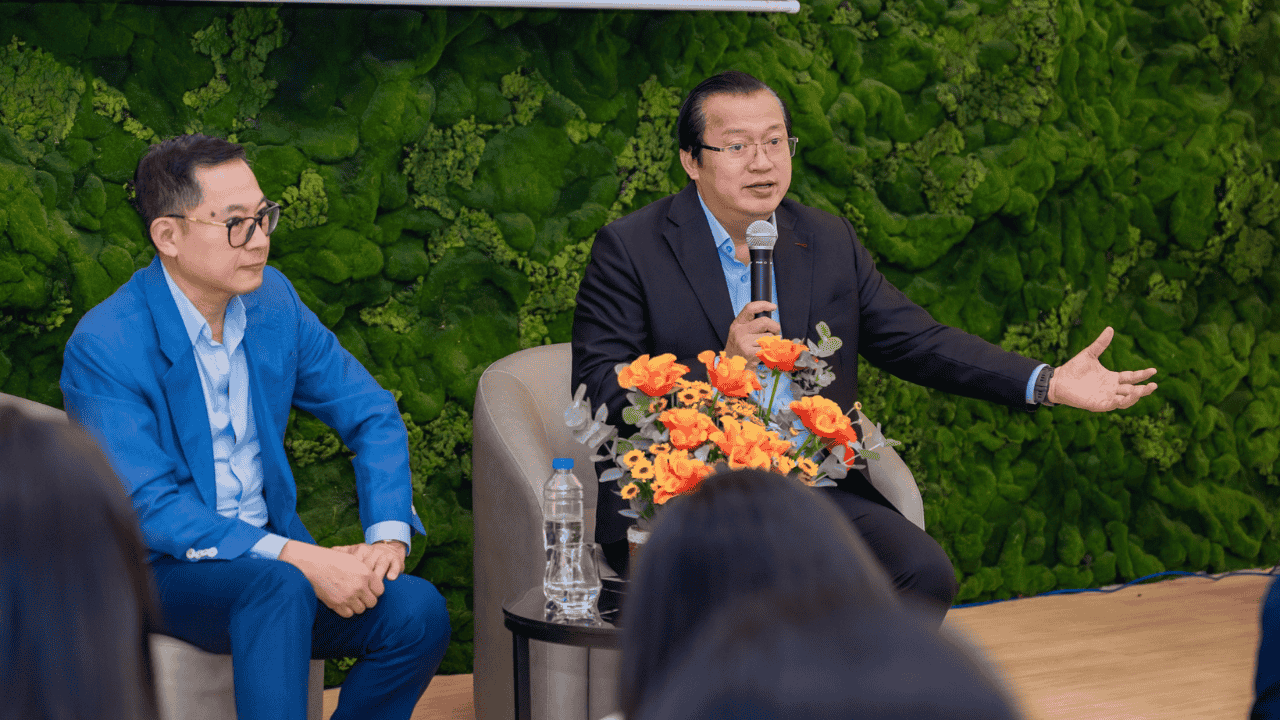
Closing remarks
The LQT Talk series serves as solid building blocks in equipping WSU–LQT BBUS students with the mindset, skills, and inspiration needed to pursue their passions and conquer their future goals.
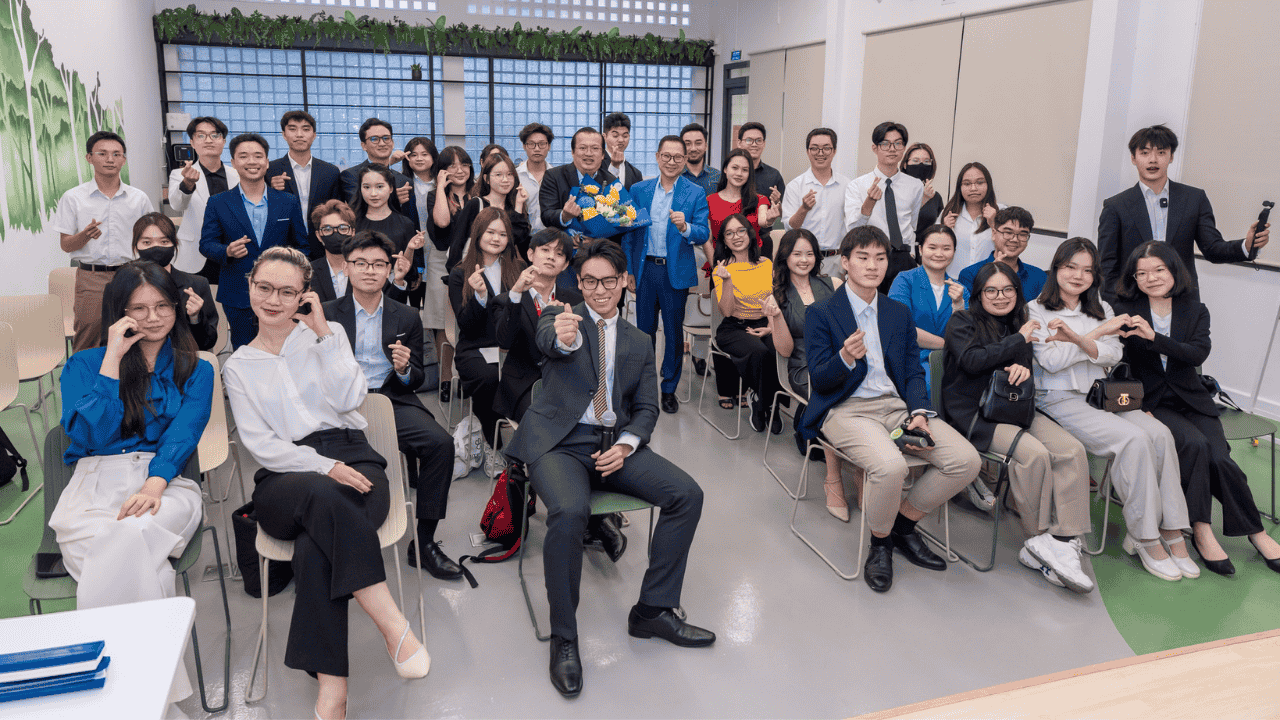
 Tiếng Việt
Tiếng Việt English
English
